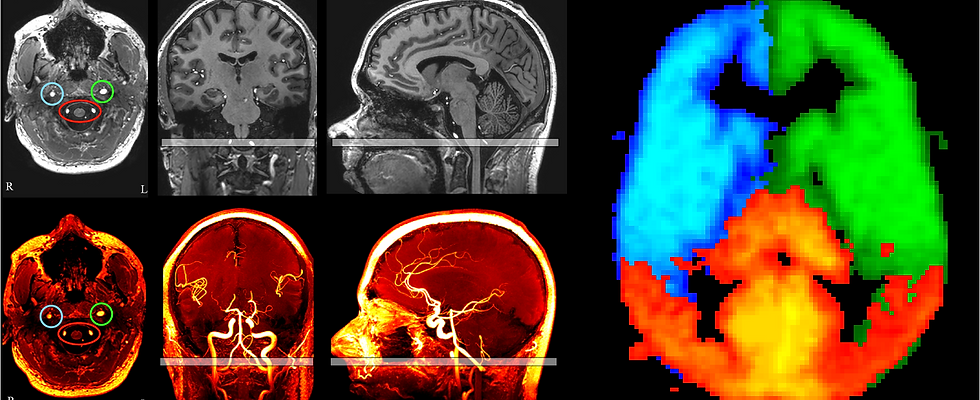
Cerebrovascular disease
Home

Our current work in cerebrovascular disease focuses on moyamoya vasculopathy, a condition where the blood vessels within the brain narrow in the absence of typical atherosclerosis. We study how the brain compensates for this condition using new magnetic resonance imaging assessments of cerebrovascular reserve capacity, perfusion, and oxygen extraction, and how this information can be used to triage patients for vascular surgeries.
Our manuscripts relevant to this work in cerebrovascular disease:
More specifically, moyamoya disease (MMD) is a severe cerebrovascular condition with unknown cause and confers a high risk of stroke; although historically observed in individuals of East Asian ancestry, MMD is now being reported with increasing frequency in North America over a broader range of races and ethnicities. Stroke risk can be reduced when surgical revascularization procedures are performed, however, surgical response and disease trajectory can be highly variable, especially in the increasingly recognized North American phenotype. This work is focused on using novel neuroimaging methods, in combination with assessments of traditional stroke risk factors, at two of the largest MMD treatment centers to identify personalized signatures of brain tissue health that can be used to portend stroke risk, with the long-term goal of using this information to triage patients for appropriate and personalized surgical revascularization procedures.
Please see additional resources on clinicaltrials.gov for participation and background:
